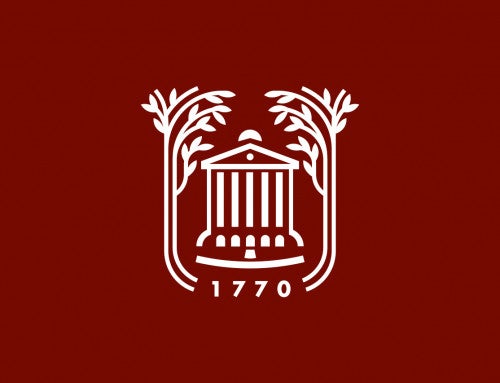The Carolina Lowcountry and Atlantic World Program at the College of Charleston is pleased to announce that historian Evan Turiano has been named the 2023 winner of the biennial Rachel Hines Prize for his manuscript, The Politics of Fugitive Slave Rendition and the Coming of the Civil War.
Turiano’s manuscript examines the contested legal rights of African Americans accused of being fugitive slaves from before the American Revolution through the onset of the Civil War. His research offers a new origin story for the 1850 Fugitive Slave Law and demonstrates new connections between freedom seekers and the coming of armed conflict.
For the CLAW program – which has awarded the prize for nearly two decades – Turiano’s manuscript emerged as the winner because it offers a fresh interpretation and comprehensive assessment based on deep archival research.
“Evan Turiano’s exceptional study of sectionalism, fugitive slave laws and the political culture of Black laws in the 19th century offers a thoroughly researched assessment crucial to understanding the landscape of the American Civil War,” says Sandy Slater, director of the CLAW program.
RELATED: Hines Prize Puts Carolina Lowcountry and Atlantic World Program on the Map
Turiano is currently the 2023 Walter O. Evans Fellow at Yale University, sponsored by the Beinecke Library and the Gilder Lehrman Center. Prior to Yale, Turiano served as the Macaulay Visiting Assistant Professor of History at Queens College, CUNY from 2017 to 2023. His work has been supported by fellowships from the New York Public Library’s Lapidus Center, the John Carter Brown Library, the Massachusetts Historical Society, the Virginia Museum of History and Culture and the University of Virginia’s Nau Center for Civil War History. His research focuses on 19th century U.S. history with an emphasis on slavery, politics and law. He received his Ph.D. from the City University of New York Graduate Center in 2022. His dissertation, “‘Secession’s Moving Foundation’: Fugitive Slave Rendition and the Politics of American Slavery,” also received the 2023 St. George Tucker Society Bradford-Delaney Dissertation Prize.
The Rachel Hines Prize is awarded every other year for the best first manuscript on a topic relating to the Carolina Lowcountry and/or Atlantic world. The prize carries a $1,000 cash award to support early career scholars and preferential consideration by the University of South Carolina Press for the CLAW Program‘s book series. It is funded by a generous donation from Sam Hines, longtime scholar at the College of Charleston and The Citadel, in honor of his mother, Rachel Hines, an avid lover of history.
Past Hines Prize winners include:
- 2021 – Caroline Grego for Hurricane of the New South: How the Great Sea Island Storm of 1893 Shaped the Jim Crow LowCountry
- 2019 – D. Andrew Johnson for Enslaved Native Americans and the Making of South Carolina, 1659-1739
- 2017 – Michael Schoeppner for Regulating Moral Contagion: Black Atlantic Sailors, Citizenship, and Diplomacy in Antebellum America
- 2015 – Huw David for The Atlantic at Work: Britain and South Carolina’s Trading Networks, c. 1730 to 1790
- 2013 – Tristan Stubbs for The Plantation Overseers of Eighteenth-Century Virginia, South Carolina, and Georgia
- 2011 – Michael D. Thompson for In Working on the Dock of the Bay: Labor and Life along Charleston’s Waterfront, 1783-1861
- 2009 – Barry Stiefel for Jewish Sanctuary in the Atlantic World: A Social and Architectural History
- 2007 – T.J. Desch-Obi for Fighting for Honor: The History of African Martial Art Traditions in the Atlantic World
- 2005 – Nicholas Michael Butler for Votaries of Apollo: The St. Cecilia Society and the Patronage of Concert Music in Charleston, South Carolina, 1766-1820
- 2003 – Bradford Wood for This Remote Part of the World: Regional Formation in Lower Cape Fear, North Carolina, 1725-1775
The next Hines Prize will be awarded next in 2025. In the interim, the CLAW program will continue its rigorous outreach program connecting the Lowcountry region’s history with the broader Atlantic world. Since its founding nearly three decades ago, CLAW has promoted scholarship and public awareness of Charleston and the surrounding Lowcountry region’s place in a broader international context by fostering research and educational programs that illuminate the ongoing cultural exchange among various cultures, societies and ethnicities in Africa, Europe, the Caribbean and the Americas.




